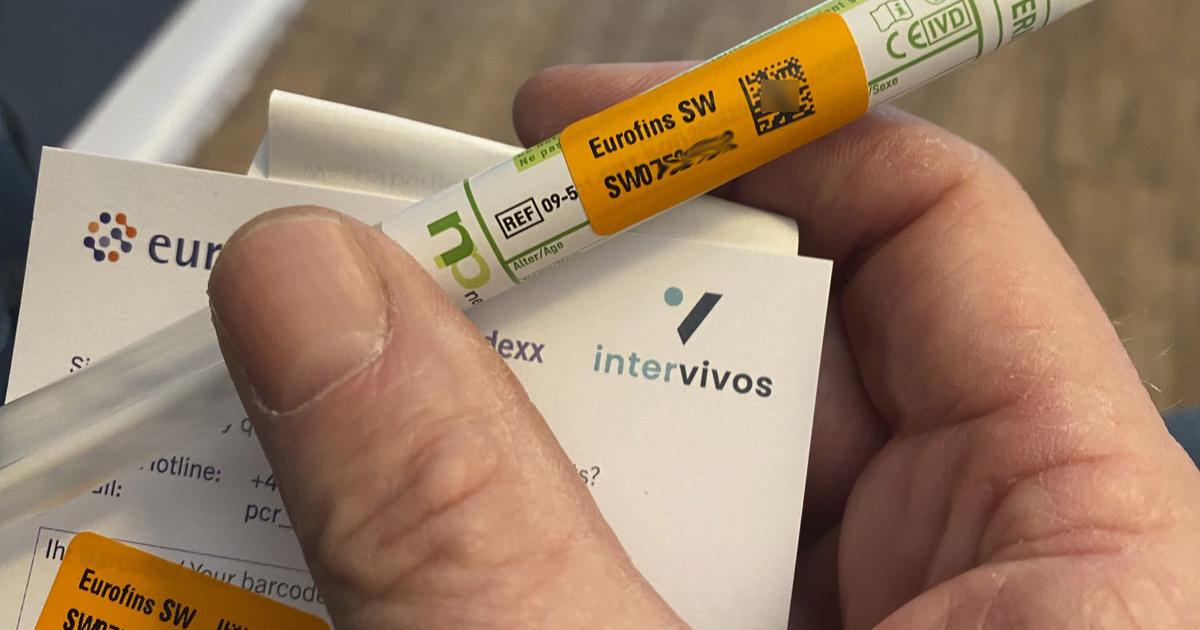Draft resolution for the Corona summit: PCR tests, vaccination and "opening perspective" - that's planned
Created: 01/23/2022, 17:38
By: Andreas Schmid
Chancellor Olaf Scholz is discussing the future corona course with the heads of government of the federal states.
(archive image).
© Peter Kneffel/dpa/dpa
The federal and state governments are coming together for the next Corona consultations.
The first draft resolution shows which rule adjustments Scholz, Söder & Co. are planning.
Berlin – The Corona summit on Monday (January 24) is all about the Omicron variant.
Record values for the corona numbers are currently being reported every day.
At the same time, the healthcare system is coping comparatively well with the high number of infections, probably due to the milder course of the mutation.
Politicians are therefore faced with a balancing act between tightening and easing.
What can be expected from the next Corona summit?
The draft resolution, which is available to our editorial team, provides the first answers.
The most important sentence is point 11. It says: "The Federal Chancellor and the heads of government of the federal states agree that the rules for social contacts and events that have been in force up to now will continue to apply." However, there are still a few adjustments.
An overview.
PCR tests: Not everyone should get a laboratory test anymore
The increasing number of infections increases the demand for PCR tests.
These more precise but more complex corona tests can no longer be implemented in the current large number.
"The laboratories are already overloaded in parts," says the draft resolution.
Therefore, in the future, not everyone who tested positive with a rapid test should receive a PCR test.
Groups who are particularly at risk and those who look after them, for example in clinics or care facilities, are primarily eligible for PCR tests.
For others who have a positive rapid test or a message in the Corona-Warn-App but no symptoms, the right to a subsequent PCR test no longer applies.
"In the event of a shortage of PCR test capacities, the necessary follow-up testing should instead be carried out with a second monitored, high-quality antigen test - possibly from a different make."
Major events: the federal and state governments speak of "opening prospects"
There are hardly any major events at the moment.
In Bavaria, for example, the Bundesliga takes place without spectators, and there are also strict regulations in the cultural sector.
Adjustments could be made soon, however.
The draft resolution speaks of an "opening perspective".
What this perspective should look like is not clear from the draft resolution.
It says vaguely: “The federal and state governments will develop opening perspectives for the moment when an overload of critical infrastructure in general and the health system in particular can be ruled out.” Adjustments to major outdoor events are conceivable.
Bavaria's Prime Minister Markus Söder has already announced that spectator regulations for culture and sport will be relaxed.
There are similar signals from the FDP, which co-governs in North Rhine-Westphalia.
However, the majority of Prime Ministers are skeptical about easing in this area.
Lauterbach has also recently been very defensive about loosening up at events.
Vaccination: The federal and state governments are demanding a higher vaccination rate - new regulations for vaccination
The federal and state governments are demanding that the population be more willing to vaccinate.
Those who have been vaccinated should have boosters after three months, and those who have not been vaccinated should receive their first injection as soon as possible.
“Even the first vaccination protects against a severe course of the disease.
There are enough doses of mRNA vaccines from Moderna and Biontech available.”
It should be uniformly regulated which population groups get which vaccine.
“For all citizens over the age of 30, the Moderna vaccine is given priority.
Biontech’s vaccine is available for children and citizens up to the age of 30.”
All prime ministers are in favor of compulsory vaccination.
However, the focus of the MPK on Monday will not be the mandatory corona vaccination.
The topic should be discussed in the Bundestag.
The first orientation debate will take place on Wednesday (26 January).
Quarantine and isolation: loose rules in the care sector
The updated quarantine and isolation regulations should also apply to people in the care sector in the future.
Means: a maximum of ten days, free testing possible after seven days.
A negative rapid antigen test is sufficient.
Boosted, newly vaccinated or recently recovered are excluded from the quarantine regulation as contact persons.
Contact tracing: focus on vulnerable groups
It is no longer possible to adequately track all contacts.
Therefore, the focus should be on areas with particularly vulnerable groups, such as in the health sector.
This would also relieve the health authorities.
For the majority of citizens, this means: “You should inform your contact persons on your own responsibility.”
As agreed in the resolution of the federal-state meeting on November 18, the states are also planning to collect the necessary data on the vaccination rate among employees and residents in old people's and nursing homes and integration assistance facilities.
The Ministry of Health is examining the possibilities of comprehensive monitoring.
Economic aid and short-time work allowance: extension is valid until March 31st
Despite the pandemic, the labor market “remains stable”.
The economic aid and the special regulations for short-time work benefits will be extended until March 31, 2021.
What will happen after that is not yet foreseeable.
“The Federal Government will closely monitor the further development of the infection process and, taking into account the measures to contain the Covid 19 pandemic, will examine at short notice whether and, if so, to what extent an extension of the aid and special regulations beyond March 2022 is necessary.”
The federal states and the Corona catalog: is someone doing the Söder?
The measures decided at the Prime Ministers' Conference actually apply to all federal states.
It is possible to apply certain rules more strictly.
However, relaxations directed against the MPK decision are rather unusual.
However, Bavaria recently resisted the federal requirement.
The Free State was the only federal state not to introduce the 2G-plus rule in the catering trade.
It will become apparent at the beginning of the week whether a federal state will deviate from certain rules this time.
We keep you up to date on all important points in the news ticker for the Corona summit.
The draft resolution also contains a rough date for the next prime ministers' conference.
The federal and state governments want to meet again in mid-February.
"Unless the further course of infection makes an earlier meeting necessary."
(as)








